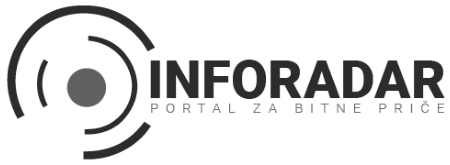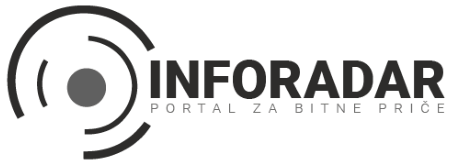Author: Darko Momić (Capital)
It is a magazine of the Association of accounts and auditors of Republika Srpska (SRR RS), and a private company of the same name – Finrar is the publisher of this specialized magazine, with the circulation of 3.000 issues.
According to APIF data, that company had 15.5 million marks in revenue over the past ten years and generated a profit of BAM 6.3 million.
The secret of the business success of this specialized magazine at time when the print media is documenting a record drop in circulation and when newspapers are getting shut down on a daily basis lies in the monopoly and the obligation of all accounting workers and auditors in Srpska to buy it.
Secret of the success in the monopoly
The leading people of the Association of accountants and auditors, primarily the former Prime Minister of Srpska and former leader of the PDP Dragan Mikerević and the former Dean of the School of Economics and Business in Banjaluka and the former RS Minister of Finance Novak Kondić, have secured the monopoly through their political influence.
Dragan Mikerević is the president of the Board of Directors, while Novak Kondić is the person authorized to represent the Association. The two were among the delegates to the founding assembly of the Association of Accountants and Auditors of the RS in October 1996, which was later renamed the Association of Accountants and Auditors of RS.
Since then these two have been considered the patriarchs of accounting and auditing in Republika Srpska and the people who keep this sector under undisputed control. It is not known exactly where the Association ends and Finrar begins, and vice versa, but the names of Mikerević and Kondić are mentioned in both.

FOTO: Capital
Dragan Mikerević and his son Dejan, are together with Kondić, the owners of the company “Finrar”, which publishes the magazine of the same name, and Milan Pucarević, who is currently the chairman of the Board of Directors and the person authorized to represent the company, is also listed as a co-owner. The Association of Accountants and Auditors, where as we have said, Mikerević and Kondić lead the charge, is also co-owner of Finrar in addition to these four natural person.
In the period in which Finrar had earned 15.5 million and generated a profit of 6.3 million, the Association had BAM 13 million in revenue and a modest profit of about BAM 930.000.
Mikerević went a step further
Dragan Mikerević went a business step further together with Finrar. He owns 50% of the shares of Microcredit organization (MCO) FinCredit, while Finrar owns 10%. The co-owner of the remaining shares is Siniša Kurteš, and it has to be noted that Srđan Amidžić, current BiH Minister of Finance, was one of the co-owners before. He left the co-ownership and is no longer directly connected to the MCO FinCredit, but he is certainly indirectly informed about the MCO’s operations in which he had shares before, given that he has appointed Siniša Kurteš as his advisor at the BiH Ministry of Finance.
MCO FinCredit had excellent business results from 2015 to the end of the last year. According to the APIF’s data, FinCredit managed to make almost BAM 40 million in revenue and had reported more than BAM 9.5 million of profit in that period, not including the year 2021 for which we did not manage to get the data. However, judging by the available business trends and data for 2020 and 2022, then the revenue was above ten, and the profit was around three million BAM in 2021.

FOTO:Capital
But let’s go back to the umbrella organization – the Association of Accountants and Auditors of RS. The official website of the Association states that it is a professional, non-profit non-government organization based in Banjaluka, consisting of 11 voluntarily associated companies which, as stated, are the basic form of organization of accountants and auditors in Srpska according to the territorial principle.
This organization derives its monopoly, which enabled its leaders to earn millions, from Article 2 of the Law on Accounting and Auditing of RS, which states that certificates and licenses are issued by a professional association.
The aforementioned Article reads that “certificate is a public document issued by a professional body defined by this Law, proving that the holder of the certificate has acquired the appropriate professional title” while “license is a public document serving as a work permit for a private person or a company issued by the Ministry of Finances or a professional body”.
It further reads that authorized auditors, certified accountants and certified accounting technician are persons holding a certificate issued by a professional association, while a professional association is defined as a non-government, voluntary professional association of accountants and auditors in RS.
The only professional association
The RS Association of Accountants and Auditors has acquired the status of the only professional association and is the only one that trains future authorized auditors, as well as certified accountants and accounting technicians. In addition, all accountants and auditors must have a certain number of points for license renewal every year, and the points are earned by attending seminars organized by the Association for which a mandatory registration fee is paid, by an annual subscription to Finrar and a number of other financial obligations towards the Association.
The RS Union of Employers’ Associations has tried to suppress this monopoly by sending an initiative to the RS Ministry of Finance in July of this year to amend the Law on Accounting and Auditing. Their initiative ended up in one of the drawers of Finance Minister Zora Vidović.
The employers proposed changes to the law, which would make the issuance of certificates and licenses the responsibility of the Ministry of Finance and not the Association .
“The lack of financial and accounting experts who would be trained for the positions of financial managers and advisors is becoming increasingly apparent. Such experts should be the key to the development of our economy and a kind of protection against bad financial moves. The goal of the amendments proposed by us was to better realize the public interest and raise the quality of knowledge”, read the letter from the Union of Employers’ Associations, signed by its president Saša Trivić.
Employers are demanding amendments to the law
He said for CAPITAL that it is necessary to establish a different education system for accountants, which would be aimed at strengthening competencies, instead of meeting the minimum knowledge threshold in order to obtain points for the license extension.
“It is necessary to have providers of professional education on finance, accounting and bookkeeping selected through a public call and on a competitive basis”, said Trivić, adding that the Association of accountants, auditors and financial workers of FBiH has already established such practice.
On the other hand, he explains that the RS Association of Accountants and Auditors has secured exclusiveness with the Rulebook on Continuous Education, because it reads that “international bodies give preference to formalized continuous education organized or approved by the RS Association of Accountants and Auditors or companies authorized by the Association.”
“It is necessary to disincentivize organizations that have public authority to monopolize knowledge, because it is high time to liberalize that area”, said Trivić.

FOTO:Capital
He believes that, in addition to the minimum knowledge threshold for obtaining or extending a license, it would be useful to have training for higher levels of knowledge so that certain intermedia knowledge and skills can be expected when hiring and engaging these persons.
“It is necessary to enable a greater number of interested parties to carry out training for higher levels of knowledge by demonopolizing the authorization process. This would create a greater number of experts in the field of finance and bookkeeping”, concluded Trivić
Dragan Mikerević says that the RS Association of Accountants and Auditors does nothing contrary to the practice and standards of the International Federation of Accountants (IFAC), of which the Association has full membership.
“I can’t speak on the phone about employers’ requests to amend the law, because I don’t know what they exactly want and what bothers them. But when it comes to accounting and audit nothing here is done contrary to the standards of IFAC, which is headquartered in New York”, shortly said Mikerević for CAPITAL.
When asked about the monopoly position and the relationship between the Association and Finrar, he briefly repeated that everything is done in accordance with international practice.
His attitude is fully shared by Novak Kondić. When asked about the Association’s monopoly and the employers’ initiative to amend the law, he said that the RS National Assembly had adopted the International Accounting Standards, the International Standards on Auditing, and codes in 2000, and that the Association is operating in line with these documents.
“The association was established in 1996, in 2004 we became an associate member, and in 2010 a full member of the International Federation of Accountants (IFAC), and we do everything in accordance with the standards and rules of this global umbrella organization that are valid in 137 countries around the world. As for the initiative of the Union of Employers’ Association, if they think that the education and issuing of certificates and licenses should be done by a bakery or similar, I have no comment to that”, said Kondić.
Ministry is “analyzing application of the existing law”
On the other hand, the Ministry of Finance said for CAPITAL that amendments to the RS Law on accounting and audit has been planned by the mid-term work plan 2024-2026.
“Following the analysis of the existing law’s application, as well as the need for an upgrade and improvement of the corresponding norms, the annual work plan of the ministry will include the proposal of the draft of the law in question”, read the answer to our question if adoption of a new RS Law on accounting and audit has been planned.
The ministry specified that the last amendments to the current law passed in 2015 were adopted in 2020, as well as that the law adopted by the RS National Assembly in April 2009 had ceased to be valid then.




